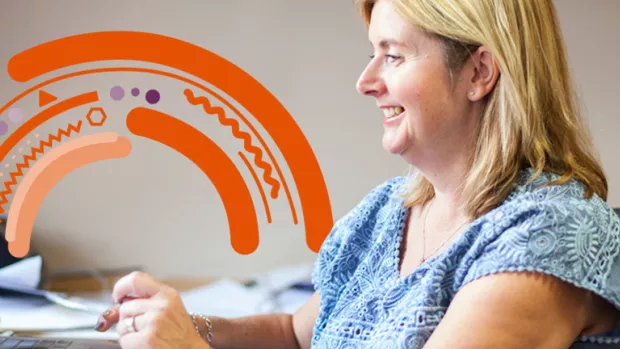
Getting help and support
Caring for someone with MS can take its toll both physically and emotionally. Help is out there.
Read the latest information about care and support and coronavirus COVID-19
There are organisations that can put you in touch with other people in the same situation, give practical help or simply listen. This page has information about the support you can get nationally and in your local area.
Some services and opportunities are different in Scotland and Wales.
Find out more
Carers assessments
If you look after someone with MS, the law says you have a right to ask your council's social services department for a carer's assessment. In Northern Ireland ask your local Health and Social Care Trust.
The assessment should look at:
- How you feel about your caring role and its effects on you emotionally, on your physical and mental health, and your life in general
- What help you need to carry on caring - if that's what you want to do
- What you need to protect your health and wellbeing
- How being a carer might be affecting what you want terms of work, training, your social life and your relationships
- Any housing issues
- Planning for emergencies
The assessment is your chance to tell your council or Trust what could make caring easier for you. They could offer you respite care (a break from caring) or other support like help with gardening, housework or transport costs. Or they might offer more support for the person you care for so that your life is a bit easier.
An assessment of the person you care for could also identify ways to support you. But you can ask for a carer's assessment whether the person you care for has an assessment or not, or even if they had one but were turned down for help themselves.
Usually it's best to make sure the two of you are assessed so that they get the whole picture. You can be assessed together if you both agree. But you might find it easier to speak more openly if you have separate assessments.
If you have an assessment and it agrees you need help, your council or Trust will draw up a support plan with you. This has details of the help they should give you. It should also cover how to support you if your situation gets more of a challenge. If that happens, let your council or Trust know so that they can look again at what you need.
To ask for a carer's assessment contact the social services department of your local council or Trust
Read about what the assessments involve and how to prepare for them.
Read more about carer's assessments in England on the NHS website
Read more about carer's assessments in Wales from Carers UK
Read about carers’ assessments in Scotland from Care Information Scotland
Read more about carer's assessments in Northern Ireland on the nidirect website
Local Carers Centres
There is a UK-wide network of local Carers Centres and services that offer support and information for families and carers.
Each centre delivers a wide range of local support services to meet the needs of carers in its community. These range from support services for you as a carer, or for the needs of the person you care for. They can also inform you of the services that your local authority may provide.
Carers Centres can assist you in getting information regarding health issues, entitlements, mobility, grants for short breaks and holidays, equipment and emotional support.
Other local organisations
There are local organisations, services and groups all over the UK that support carers in their area. To find services near you, contact your local social services department or Carers Centre.
National carers organisations
You might find these national carers organisations helpful for information and support.
Carers UK
A national charity providing information and support for carers, via their adviceline (0808 808 7777), online forums and publications. They have specific websites for each UK nation:
Carers Trust
A national charity providing information and Carers Centres. In England and Wales they can help provide flexible breaks for carers at home. In Scotland, Crossroads Caring Scotland offer similar flexible breaks and Crossroads Care NI does this in Northern Ireland.
Carers Trust also have information for young carers.
NHS care and support guide
Information, support and advice on all aspects of caring and looking after yourself from the NHS online care and support guide.
Getting help in an emergency
Joining a 'carers emergency card' scheme might help relieve some of the worry in the event of an emergency. On registering with a scheme, you will think about and draw up an emergency care plan, with help from a skilled worker.
If trouble strikes, the scheme would use your plan to make arrangements for replacement care for the person you care for. Carers emergency cards aren't available everywhere, so check with your local authority or Carers Centre to see if there is one in your area.
Online help to make things easier
If you're new to caring, or even if you've been a carer for years, online support might be a good way to connect with others, and get emotional and practical support. Jointly by Carers UK is a website and mobile phone app. It's been developed by carers, for carers.
You might find our MS Society local support and online events helpful too.
Help from the MS Society
Information publications
Read our booklets:
There are many other publications that give more detailed information about MS and specific aspects of living with the condition, and also about the help that is available from external organisations.
Emotional support
Offering a free and confidential listening ear, the MS Helpline is available for carers and families and anyone affected by MS. Call the Helpline on 0808 800 8000 or email [email protected]
Last full review:
We also update when we know about important changes.



